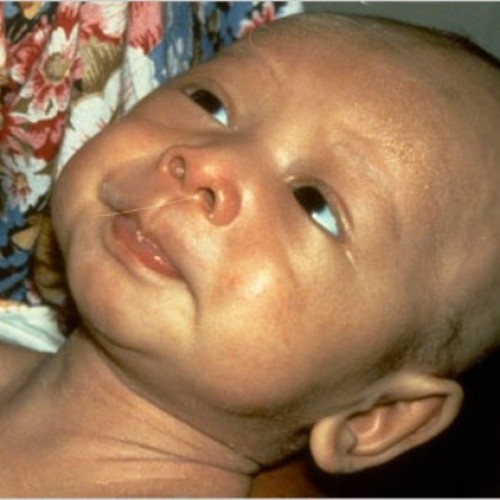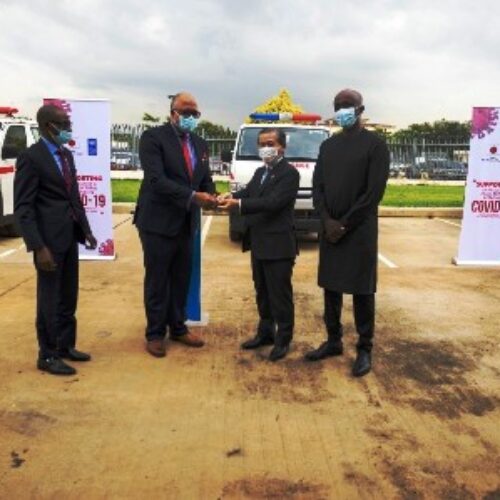NCDC raises alarm on increasing COVID-19 cases
… issues Pubic Health Advisory ahead of Eid-el-Kabir celebrations
The Nigeria Centre for Disease Control and Prevention (NCDC) has raised the alarm on the rise of COVID-19 cases globally and urged religious organisations, community leaders, and the Nigerian public to take necessary precautions as the country prepares for the Eid-el-Kabir celebrations.
In a Public Health Advisory issued today, NCDC drew attention to the World Health Organization (WHO) latest situation report showing that the number of weekly COVID-19 cases has increased globally for the third consecutive week while Nigeria’s national surveillance system has also detected a gradual increase in the daily COVID-19 cases recorded in the country.
“Although confirmed cases increased from 267 to 445 between weeks 21 to 24, hospitalisation and fatalities have remained low suggesting these are mostly mild to moderate cases or we are in the lag phase before we see the accompanying increase in severe disease and hospitalisation.
“Since Nigeria’s first case was detected on 27th February 2020, we have had 256,695 confirmed cases with 3,144 deaths across 36 states and the FCT.”
NCDC further revealed that Genomic surveillance has confirmed Omicron and its various offspring (sub lineages) as the dominant circulating variant of concern associated with the spread of the disease in the country. The Advisory reads further:
“The recent increase in cases may be in part or whole due to increased testing over the last few weeks, increased circulation of Omicron sub-lineages (BA.4 and BA.5 as seen elsewhere), and an increase in seasonal illness with cold and cough symptoms as well as poor adherence to preventive measures such as the use of masks.
“Over the last 2 years, Nigeria, just like the rest of the world has battled a pandemic that led to the hospitalisation and deaths of thousands and beyond health, also disrupted livelihoods and economies. The national multisectoral response is coordinated by a Presidential Steering Committee on COVID-19 (PSC-COVID-19) with the NCDC leading the public health response. In April 2022, due to the declining number of COVID-19 cases, the availability of vaccines, and the increasing number of people vaccinated in Nigeria and globally, there was a further easing of the COVID-19 restrictions and protocols.
“Despite easing restrictions, the NCDC and Federal Ministry of Health through the National Multisectoral COVID-19 Emergency Operations Centre (COVID-19 EOC) has been working closely with states and other partners to monitor the epidemiology of the virus and sustain response activities in the country.
“The national EOC maintains active surveillance in conjunction with State Epidemiologists, supports states to ensure that access to testing is provided for prompt management of confirmed cases, and coordinates genomic surveillance to detect emerging variants. Our focus is to ensure response continuity for COVID-19 and improve our health system while giving needed attention to other priorities within our mandate including the ongoing monkeypox response.
“In addition to the COVID-19 situation in Nigeria and globally, the upcoming Eid-El-Kabir celebrations against a backdrop of suboptimal COVID-19 vaccination uptake and increasing COVID-19 case numbers calls for increased individual and collective responsibility.
“The virus that causes COVID-19 is more likely to spread in mass gatherings and when people do not adhere to preventive measures such as physical distancing, mask use, and hand hygiene. As we celebrate, we urge Nigerians to prevent the onset of a full-fledged fifth COVID-19 wave by remaining mindful of the high risk of spread of COVID-19 and acting in tandem by adhering to recommended public health safety measures.”
Below are safety tips by NCDC on how you can protect yourself and those around you:
- Visit the nearest government health facility to get vaccinated if you have not been previously vaccinated. If you received your first two vaccine doses up to 6 months ago, please go and get your booster dose.
- Maintain a physical distance of at least 1.5 metres from others, even if they do not appear to be sick.
- Avoid crowding (indoors and outdoors) and close contact.
- Wear a properly fitted face mask when in crowded open and closed places, especially in poorly ventilated settings.
- Wash hands frequently with soap under running water or clean your hands frequently with an alcohol-based sanitiser.
- Cover your mouth and nose with a bent elbow or tissue when you cough or sneeze.
- Dispose of used tissues immediately and clean hands regularly.
- If you develop symptoms or test positive for COVID-19, self-isolate until you recover.







0 Comments
No Comments Yet!
You can be first to comment this post!